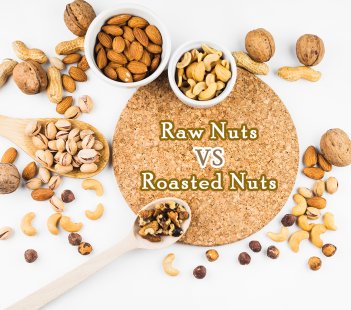
They are packed with healthy fats, fiber, and protein, and they’re a great source of many important nutrients and antioxidants.
What’s more, studies have shown that eating nut has several health benefits, including lowering cholesterol, blood pressure and blood sugar (1, 2, 3, 4).
However, some people wonder whether roasting nuts affects their nutritional content.
Why Are Nuts Roasted?
Nuts are generally roasted to improve their taste, aroma and crunchy texture (5).
Roasting is defined as cooking using dry heat, which cooks the food evenly on all sides. Most nuts are roasted without their shell, except for pistachios, which are often roasted in-shell.
Roasting methods are sometimes used to separate the shells of nuts from their kernels. (6).
There are two main kinds of roasting:
- Dry roasting
- Oil roasting
Which Type Should You Eat?
Both raw and roasted nuts are good for you and provide health benefits.
Both varieties contain similar amounts of calories, protein, carbs, and fiber.
However, roasting nuts may damage their healthy fat, reduce their nutrient content and lead to the formation of a harmful substance called acrylamide.
On the other side, raw nuts are more likely than roasted nuts to contain harmful bacteria like Salmonella.
That said, these risks are low.
Importantly, how nuts are roasted can have a big impact on their nutrient content. If you roast them yourself, keep the temperature relatively low, at about 284°F (140°C) for 15 minutes. The nuts should come out with a lightly roasted color.
Also, make sure not to store them for too long, since they have a limited shelf life. Only roast nuts that you are planning to eat over the next few days.






User comments